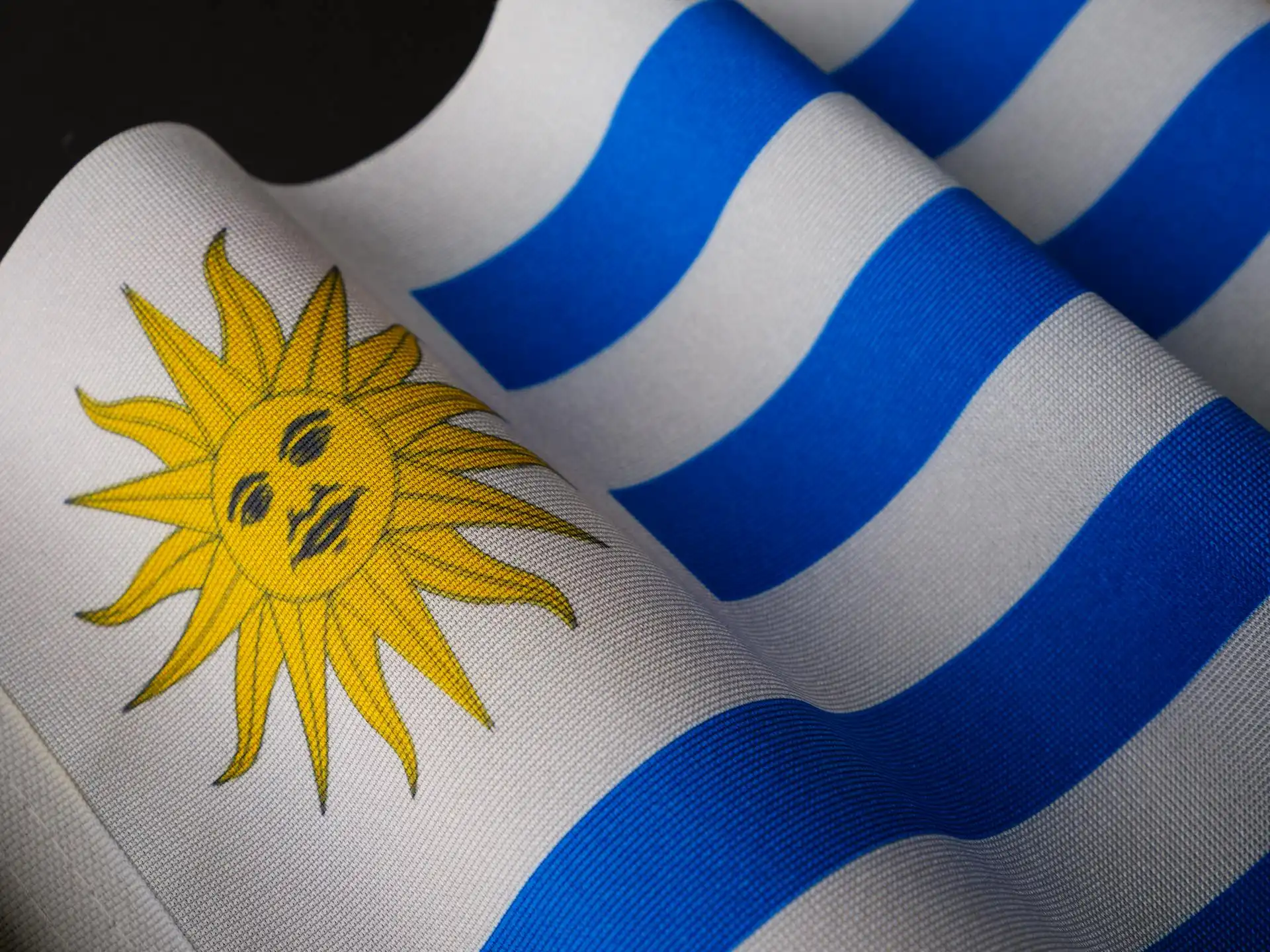Discover the rich and diverse culture of Uruguay with its indigenous roots, European influences, carnival, mate tradition and much more… everything about Uruguay at a glance!
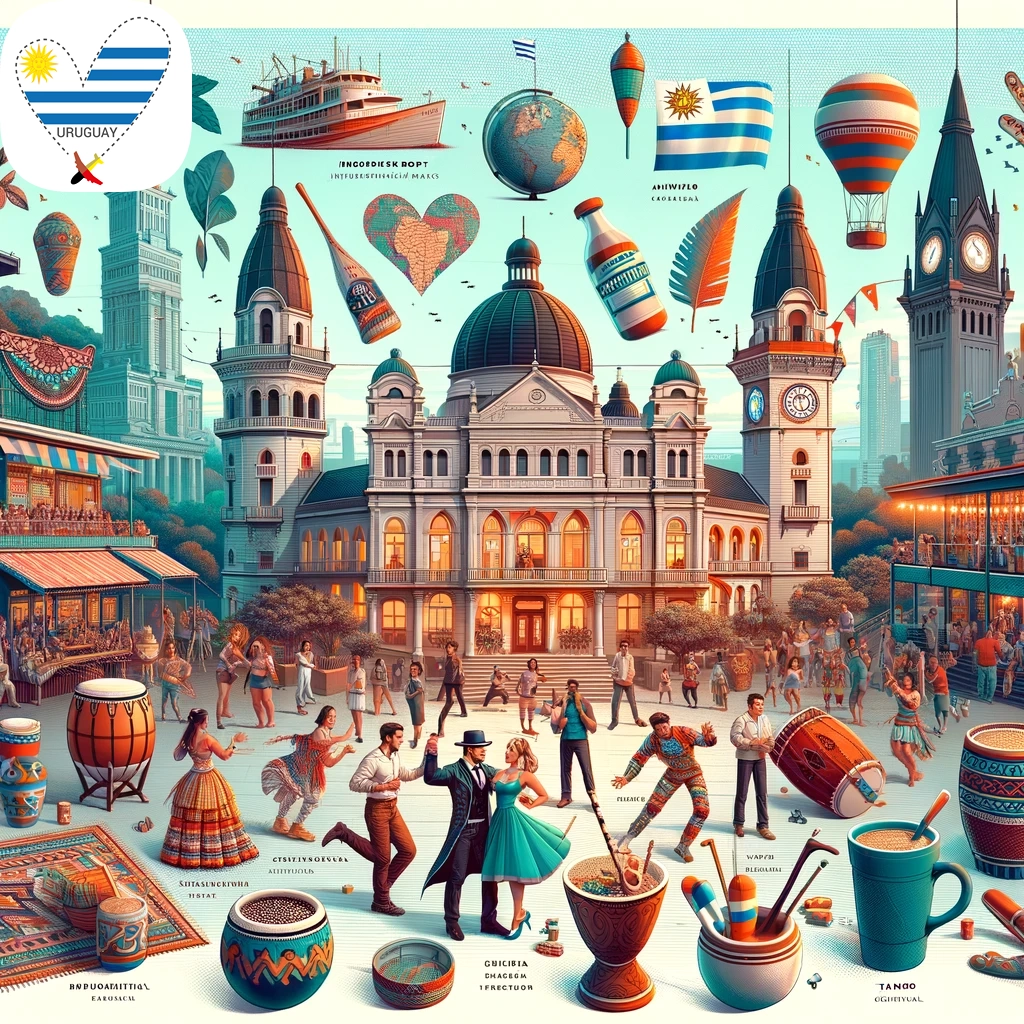


The diverse culture in Uruguay – represent the rich and diverse culture of Uruguay, incorporating elements that highlight its unique cultural heritage. This visual piece embodies the vibrant atmosphere of Uruguay, showcasing its indigenous roots, European influences, the celebration of Carnival, the Mate tradition, and more, all set against a backdrop that hints at Uruguay’s beautiful landscape and welcoming community
The stories behind Uruguay A country shaped by immigration
Uruguay, a small country between Brazil and Argentina, is home to a diverse and rich culture shaped by a large number of immigrants. Indigenous peoples, Spaniards, Portuguese, Italians, Africans and Germans have been followed throughout history by other groups from all over the world, all of whom have contributed their part to Uruguay’s unique identity.
Your indigenous roots
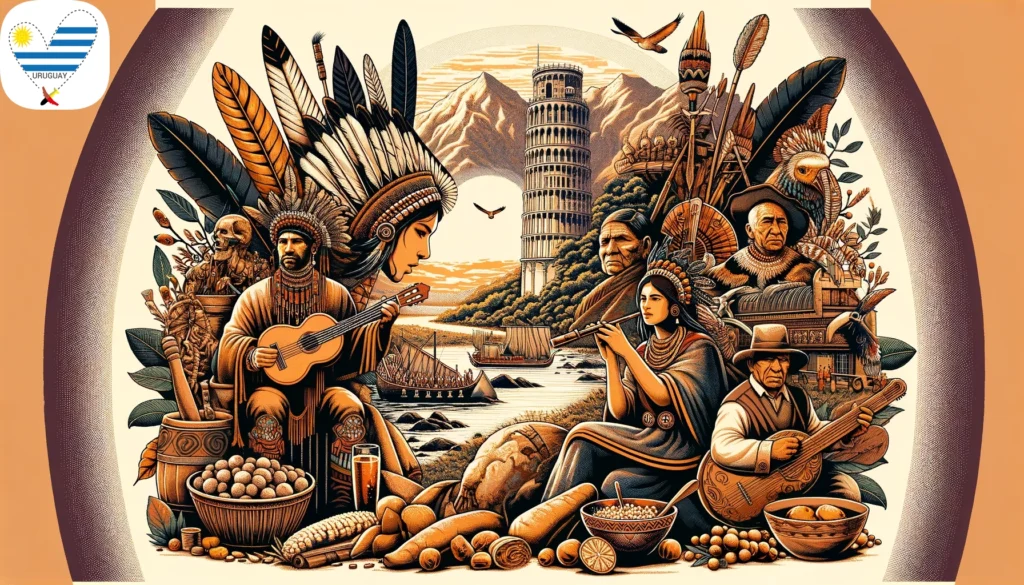


Before the arrival of Europeans, various indigenous peoples inhabited what is now Uruguay, including the Charrúa, the Guenoa and the Chaná. Although their culture and traditions shaped the Uruguayan way of life in areas such as music, food and crafts, these indigenous peoples no longer exist.
The legacy of the colonial era
The Spanish colonial period, which lasted from the 16th to the early 19th centuries, left a deep mark on Uruguayan culture. The country’s Catholic religion, Spanish language and architecture bear witness to this period.
European influences
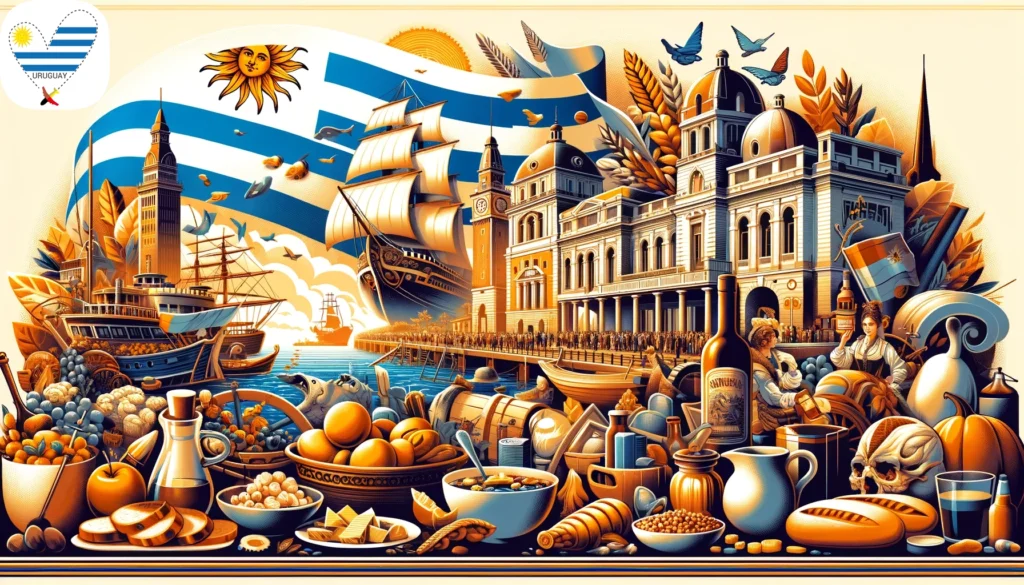


In the 19th and 20th centuries, large waves came to Uruguay from Europe, particularly from Italy and Germany. These immigrants brought with them their own languages, customs and culinary traditions that enriched Uruguayan culture.
Carnival and Candombe: expression of the Uruguayan attitude to life
Carnival – The festival of joy
Carnival in Uruguay is one of the largest and most spectacular celebrations in the world. For 40 days, until Ash Wednesday, the whole country celebrates with music, dance and colorful costumes.
Candombe – rhythm and joy of life
Candombe is an Afro-Uruguayan musical tradition that emerged from the interplay of African rhythms and European elements. The rousing drum sounds and energetic dances are an integral part of the carnival and the Uruguayan lifestyle.
Mate and Asado: traditions that connect
Mate – Drinking tea together
Mate is a national drink of Uruguay and Argentina. Prepared from yerba mate leaves, it is drunk in a calabash with a metal tube. Mate rounds are an important part of social life and serve for communication and exchange.
Asado – The sociable barbecue party
Asado is a traditional barbecue in which meat, vegetables and offal are roasted over an open fire. The focus is on eating together and socializing.
Tango – passion and melancholy
Tango, originally from Buenos Aires, also has a large fan base in Uruguay. The passionate and melancholic music and the elegant dance reflect the soul of the Río de la Plata space.
Uruguay: A country of openness and tolerance
Secularism and tolerance
Uruguay is a secular state in which religion and politics are strictly separated. The country is characterized by a high level of tolerance towards other cultures and religions.
Progressive social policy
Uruguay was one of the first countries in the world to legalize same-sex marriage and legalize abortion. The country is considered a pioneer when it comes to equality and social justice.
Uruguay and German immigration: An ideal country for newcomers
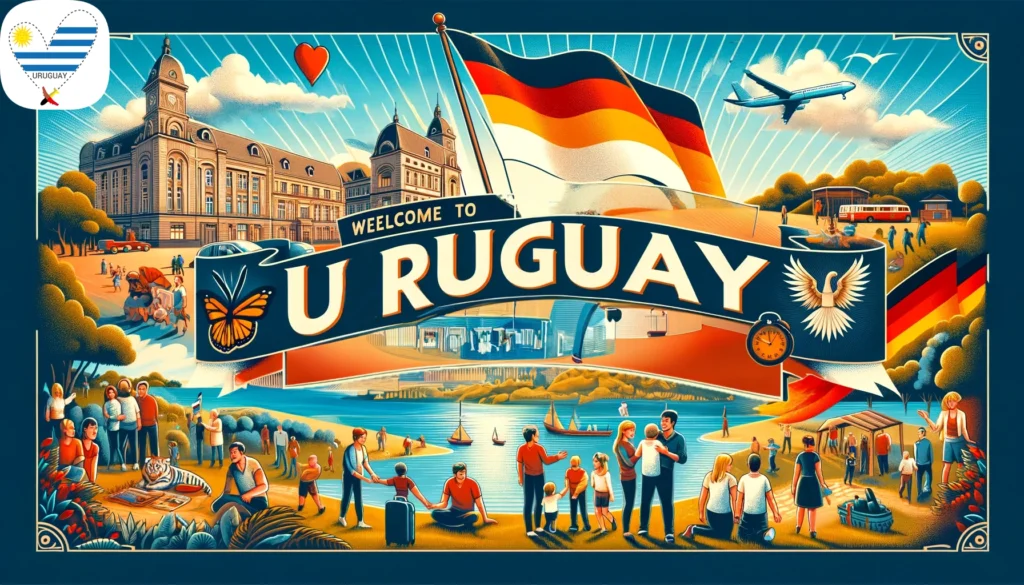


Uruguay has always been a country of immigration and welcomes newcomers with open arms. German immigrants find a particularly pleasant environment here, as they are valued and respected due to historical relationships and mutual appreciation.
Germany’s reputation as an industrial nation and “land of poets and thinkers” is highly respected in Uruguay. German immigrants therefore often bring with them sought-after skills and qualifications that are valued in Uruguayan society.
Uruguay is also characterized by its child-friendliness. Families with children will find a safe and supportive environment with numerous playgrounds, parks and family-friendly activities.
Compared to Germany, Uruguayan society is much more open and sociable. The people are warm-hearted and open-minded, which makes integration easier for immigrants. Here you feel less distance and closedness, but rather a welcoming culture that promotes exchange and mutual enrichment.
All in all:
- Uruguay is an immigration-friendly country with an open and tolerant society.
- German immigrants are welcome in Uruguay because of their skills and cultural background.
- The country offers a child-friendly environment with many leisure opportunities for families.
- Uruguayan society is much more open and sociable than German society, which makes integration easier.
All of these factors make Uruguay an ideal destination for German immigrants who are looking for a new home with diverse opportunities and warm coexistence.



Other interesting topics
- literature and music
- Sports
- Landscape and nature
- gastronomy
Tips for travelers
- Learn some basic Spanish.
- Be open to new experiences and cultures.
- Try the local cuisine.
- Visit Montevideo, the capital of Uruguay.
- Visit Punta del Este, the most exclusive place.
- Discover the country’s beautiful landscape.
Uruguay is a country with a unique culture and a diverse population. The country offers its visitors much to explore, from the vibrant capital of Montevideo to the beautiful beaches and breathtaking scenery.
Conclusion:
Uruguay’s diverse culture is a melting pot of influences from around the world. The country’s openness and tolerance as well as its breathtaking landscape make Uruguay an unforgettable travel destination for everyone.
https://livinginuruguay.com/finding-peace-and-hapiness/
FAQ
What is special about Uruguay?
Uruguay stands out for its progressive society, political stability and high quality of life. It is known for its liberal social policies, including early legalization of same-sex marriage and cannabis control. Additionally, Uruguay is known for its stunning scenery, from the expansive beaches to the rural grasslands that cover much of the country. Respect for civil rights and a strong commitment to environmental protection make Uruguay a role model in Latin America and worldwide.
What you should know about Uruguay?
Political and social stability: Uruguay is considered one of the most stable countries in Latin America in terms of politics and social affairs. It has a high quality of life and an excellent education system.
Economy: Uruguay’s economy is focused on agriculture, tourism and increasingly technology. Uruguay is also known for its high quality meat exports.
Cultural Diversity: Uruguay offers a rich mix of cultural influences, particularly visible in music, dance (particularly tango) and culinary traditions.
Environmental protection: The country is a leader in renewable energy, with almost 95% of its electricity coming from renewable sources.
What religions are there in Uruguay?
Uruguay is known for its secular attitudes and high rates of non-religious people. It is one of the most secularized countries in Latin America. The state is officially secular, and several laws promoting the separation of church and state have been passed since the early 20th century. The majority of the population identifies as Roman Catholic, but there are also significant numbers of people who belong to other Christian denominations, Judaism, Buddhism or other faiths, as well as a large proportion of people who identify as agnostic, atheist or just don’t identify religiously.
What language is spoken in Uruguay?
The official language of Uruguay is Spanish. Due to its colonial past and waves of immigration from Europe, the Spanish spoken in Uruguay is characterized by various accents and influences, most notably the Italian language. This results in a unique dialect known as Rioplatense Spanish.
FIRST IMPRESSIONS OF URUGUAY should you visit montevideo?
Explore More About Living in Uruguay with Raus-aus.eu
For comprehensive support in establishing your life, business, or investments in Uruguay, especially for expats from Germany, visit our partner site Raus-aus.eu . Discover a wide range of resources, articles, and real estate listings at Living in Uruguay .
Creating synergies for a smoother transition and successful investments. 🌎🏡



